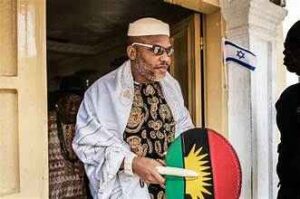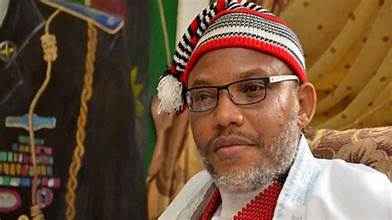The United Igbo Elders Council (UNIEC) has made a fervent appeal to the Federal Government, calling for the immediate and unconditional release of Nnamdi Kanu, leader of the Indigenous People of Biafra (IPOB), along with all other political prisoners currently held.
In a statement issued on Saturday by Prof. Obasi Igwe, Director of Media and Publicity, and Alpha Justice, Coordinator-General of UNIEC, the elders condemned the ongoing unlawful arrests, detentions, and extrajudicial killings occurring throughout Nigeria. They also called for an end to the economic blockades affecting Eastern Nigeria.
The statement underscored the importance of peace and stability in the nation, advocating for restructuring, regionalism, and a referendum as essential steps towards fostering meaningful development in Nigeria.
Furthermore, the elders highlighted the critical need to reopen the Eastern ports to enhance economic activity and growth in the region and beyond.
The statement asserted: “By mid-2015, there was no insurgency or rebellion against the Federal Government or any movement for Biafra within Igbo society. Today, the only conflict arises from a tyrannical regime that has incited violence, issuing shoot-to-kill orders against innocent youth, ostensibly to punish the Igbo community for perceived offenses.”
The elders demanded the unconditional release of all political detainees, particularly Mazi Nnamdi Kanu and his associates, and urged an end to all forms of illegal nighttime arrests, detentions, and extrajudicial killings.
“Mazi Nnamdi Kanu has suffered unimaginable torture and dehumanization, and keeping an innocent person imprisoned serves no purpose for the nation,” they remarked.

They also pointed out that reopening the Igbo/Eastern Ports would catalyze development throughout the Eastern Middle Belt and beyond. In contrast, the prolonged closure of these ports is causing significant adverse effects on the entire Eastern region, extending down to Maiduguri.
The statement called for Nigeria to pursue a restructuring that recognizes both singular regional identities and multi-ethnic regions, with the number of each category determined through competitive regional considerations.
“No economic strategy, no matter how well-crafted, can succeed under a neocolonial framework without a solid political foundation; the success of any initiative relies on a sound political economy,” they concluded.




